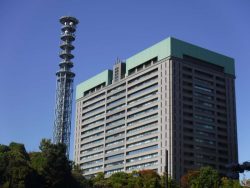15:07 JST, June 19, 2025
Surgical operations directly affect the lives of patients. The weight of the responsibility and harsh working conditions seem to be driving surgeons away from their profession. There is an urgent need to resolve the shortage of those who take up this occupation.
A survey conducted by the Japan Surgical Society has highlighted the reality that although the overall number of doctors is increasing, there is a shortage of surgeons who often engage in work outside of ordinary hours, including emergency operations. More than half of Japan’s major hospitals responded that they lack enough surgeons.
The most serious shortage is in gastroenterological surgeons, who specialize in operations on the stomach, intestines and other organs. The number of gastroenterological surgeons has decreased by 10% over the past 10 years or so. It is estimated that the number will decrease to three-fourths of its current level in 10 years due partly to the aging of these surgeons.
The number of patients suffering from digestive system cancers exceeds 400,000 a year, and more than 120,000 advanced gastrointestinal surgical operations are performed annually. A situation must be avoided in which patients are unable to undergo operations due to a shortage of surgeons.
In the first place, it is important to improve surgeons’ harsh working conditions.
In Japan, a system in which one doctor treats one patient has taken root. For patients, it is reassuring to be seen by a doctor with whom they have a relationship of trust.
On the other hand, under the system in which the same doctor is always in charge of a patient, when the patient’s condition deteriorates, the doctor must respond to the situation regardless of whether it arises on their days off or at night, which places a heavy burden on the doctor. It is hoped that a team system in which multiple doctors take turns caring for patients will be introduced widely.
One idea would be to have nurses and others handle tasks such as entering data in medical records.
One reason for the growing trend of surgeons leaving their profession is the issue of their treatment. In many cases, surgeons are paid the same as doctors in other departments, despite their heavy workload.
Hiroshima University Hospital has increased salaries by 30% for young doctors and others who choose to specialize in surgery after graduating from medical school and completing their training.
The central government should consider measures to deal with the shortage of surgeons, including a review of medical fees paid to medical institutions, to ensure that salaries are paid in accordance with the actual conditions in the medical field.
Another issue to consider is the sharing of roles among hospitals. It is advisable that highly difficult surgical operations should be concentrated in large hospitals that provide advanced medical care, and personnel should be allocated to these hospitals on a priority basis. Small and midsize hospitals could perform relatively low-risk operations.
Society is becoming increasingly strict over the safety of surgical operations.
At a midsize hospital in Hyogo Prefecture, an advanced operation performed by neurosurgeons resulted in a medical accident that left the patient seriously disabled. One of the doctors has been charged with professional negligence resulting in injury.
Data show that hospitals that have performed more operations have lower surgical mortality rates. If advanced operations could be concentrated in large hospitals, isn’t it possible to reduce the risk of such accidents to some extent?
(From The Yomiuri Shimbun, June 19, 2025)
"Editorial & Columns" POPULAR ARTICLE
-

Mt. Fuji Eruption: Preparations Necessary for Widespread Ashfall
-

Nippon Steel’s Acquisition To Be Approved: Deal Should Be a Symbol of Japan-U.S. Economic Cooperation
-

Basic Economic, Fiscal Policy Draft: Deepen Strategy to Increase Take-home Pay
-

With Trump Back, Japan Must Expand Foreign Policy
-

Armitage Strengthened Japan-U.S. Alliance; Late Statesman Saw Great Potential of Bilateral Ties
JN ACCESS RANKING
-

Aichi Rice Production Under Siege from Warming Climate; Record Heat Stunts Crop Growth, Causes Greater Pest Activity
-

Japanese Researchers Develop ‘Transparent Paper’ as Alternative to Plastics; New Material Is Biodegradable, Can Be Produced with Low Carbon Emissions
-

Trump: Nippon Steel Will Part Own U.S. Steel, U.S. to Be in Control; Share Distribution, Other Details Remain Unclear
-

Japan’s Cooperation in Alaska LNG Development Project Emerges in Japan-U.S. Tariff Negotiations; But Industry Concerns Exist
-

Japan’s Core Inflation Hits More than 2-year High, Could Force Year-End BOJ Hike



















